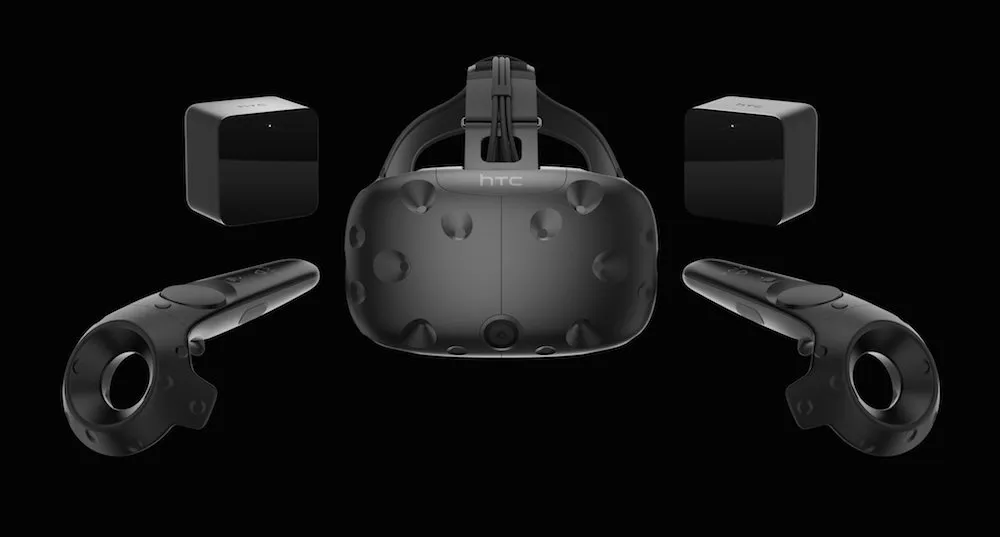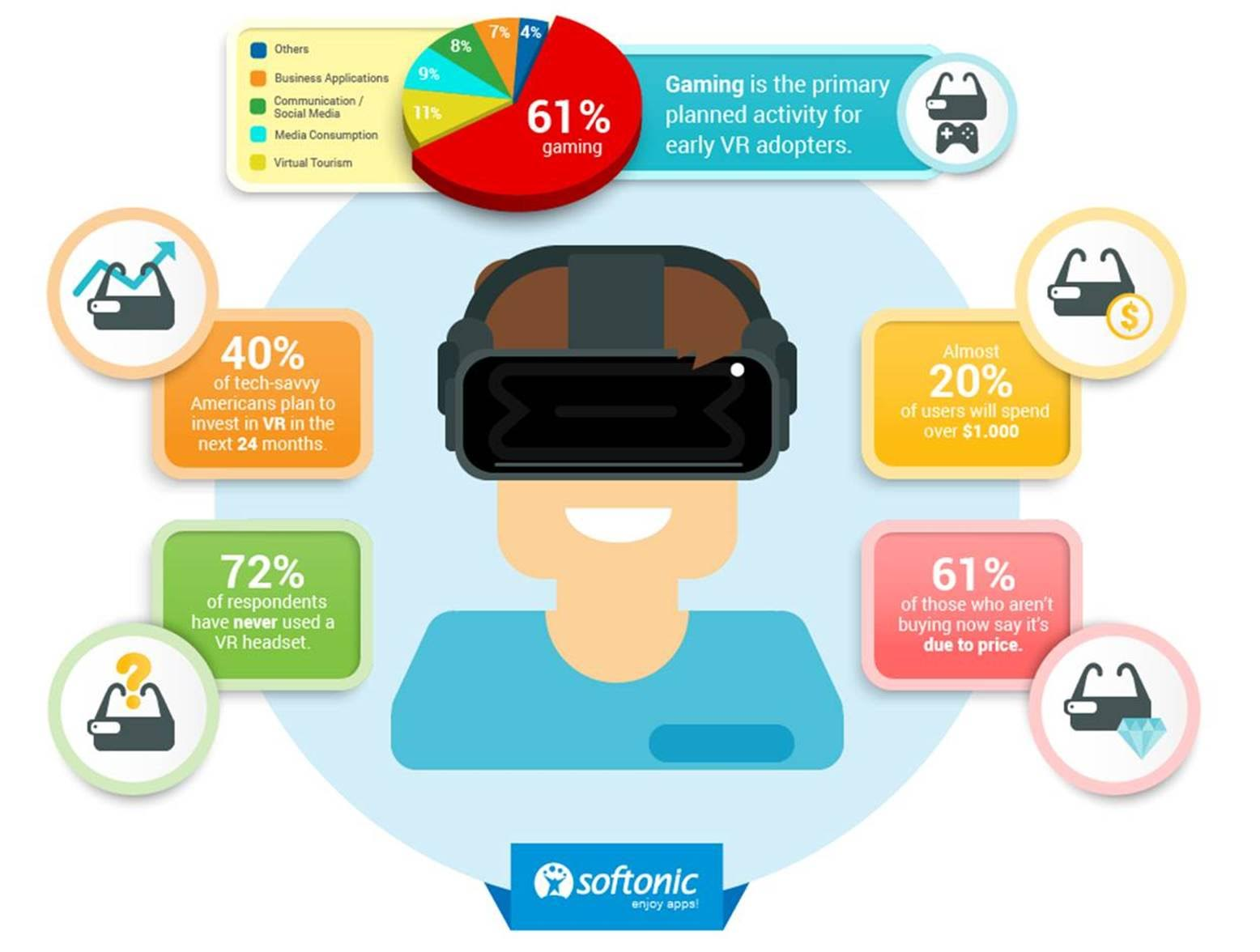VR impresses just about anyone that tries it, but the high cost of PC-based kits often sends people running. But a new survey has this week suggested that this won’t be an issue for long.
Softonic has published the results of a survey given to 2,000 “tech savvy” Americans, quizzing them on their thoughts and intentions towards VR. You can see the highlights of that survey in an infographic below, but there are some things to point out. First up is the importance of that pricing. Of all the people who said they were not buying a VR HMD, 61% confirmed that it was due to price. For context, the Oculus Rift costs some $599, while the HTC Vive is set at $799. Neither of those prices includes the expensive PC you’ll need to be able to run VR experiences.
On the upside, 40% of those survey said that they would be buying a VR HMD within in the next two years. Anyone that’s followed VR thus far will know that a lot can happen in that space of time, and it’s quite possible we could even see a price drop on these initial models for the Rift and Vive in the space of time, if not the release of their likely successors. Of course, it’s only five months now until the launch of another major VR HMD, PlayStation VR, which is billed as a cheaper option at $399 (without the required camera), running on a PlayStation 4 console.
There were also some interesting facts and figures regarding how many people had tried VR, and what they intended to do with it. 72% had never used a headset – a surprisingly large amount for a crowd that identifies as tech savvy – while 61% plan to use their HMDs for gaming. That’s to be expected given the push towards gaming that Oculus, HTC and Sony are going through right now, though we also know that video is the most popular application on Oculus and Samsung’s Gear VR right now. 11% plan to use it for virtual tourism, too.
These results are more affirming than surprising, then, but at least confirm that the wider tech audience is taking a keen interest in VR. Just how quickly they’ll be able to act on that interest remains to be seen.






























